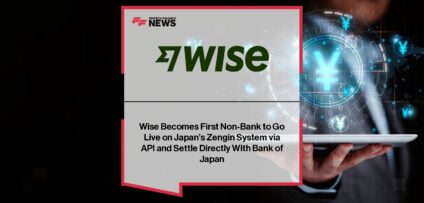Breaking News

Exclusive: ‘Staying ahead of the Curve’ – Shachar Bialick, Curve in “The Paytech Magazine”
UK fintech Curve is defending its first-mover status by adding products and entering new markets as the ‘personal chief financial officer’ for millions of customers. Founder and CEO Shachar Bialick explains how the platform is transitioning

He is the founder and CEO of Curve, a platform that gives users a card that’s not a card (as we’ve come to understand the term anyway) and an app that consolidates their banking plastic in just one place.
The Curve card’s key property – as the name implies – is flexibility: the potential to bend the transaction paradigm. As the marketing puts it, it’s a ‘bad-ass 100 cards in one’, a ‘gateway to money for nothing’ as well as being a personal firewall, kick-ass travel companion, and a time machine by virtue of the fact that you can retrospectively alter the account from which you’ve taken a payment.
Instead of a bulging wallet, customers just need to carry their single Curve card, iterations of which include the free Blue Curve, the premium Black or Metal and, most recently, the limited edition Curve Investor card, currently exclusive to the company’s legion of crowdfunders. As paid-up devotees, they get to use the most advanced card – among the first in Europe to be provisioned without a primary account or any other number embossed on it. Instead, the details are secured behind a PIN or biometric access on the Curve app.
The lucky recipients of the Curve Investor card contributed to a record fundraise of £6million on Crowdcube in September 2019. A primary account number (PAN)-less card, described by Curve as ‘the next generation of payment cards’, seems a fitting reward.
To date, the company claims to have more than a million users.
That’s almost certain to be increased by having finally onboarded with Apple Pay at the start of 2020, while a £55million fundraise last summer, putting the London-based startup’s valuation at around $250million, will allow it to expand both its products and geography.
“Curve is here to solve a huge problem, which is that our finances are very fragmented across multiple products and services, and this shows no signs of slowing down,” says Bialick.
By way of a snapshot of the UK, according to 2019 research by Zopa, one in three Brits convolutes their life by operating two or more current accounts – a trend that’s up 36 per cent year-on-year.
“Our view is that the market will eventually rebundle itself and move banking to the Cloud,” says Bialick. “Curve intends to become that rebundler, that ‘over-the-top’ banking platform, as we define our category, by creating a product that does not request you to change your behaviours, or the products and services that you love and trust. It instead connects everything to one platform, one card, and allows you to do a lot of magical stuff, from saving money on hidden fees to moving transactions back in time, to getting better deals on credit, and to connecting your cards to the likes of Apple Pay and Google Pay.”
Moving into lending
Historically, over-the-top terminology has been used to describe the way video streaming services such as Netflix run on top of existing broadband infrastructure. In the same way, Curve isn’t seeking to replace your existing bank accounts but is instead a Cloud-based platform that makes the banking and payments infrastructure more user-friendly.
The Apple Pay news revealed at this year’s Paris Fintech Forum in January is particularly important for the platform’s US expansion plans, given that Apple Pay became the most popular app among the country’s mobile payment users last year. The tie-up means that even if a customer’s bank cards aren’t individually available through Apple Pay, they will be by virtue of Curve acting as the intermediary.
“Apple Pay was the number one most-wanted feature, and it’s understandable why,” explains Bialick. “Apple is a remarkable company. When it comes to building great user experiences, it has a very strong product and people are looking for more convenience and more minimalism. When you leave home, ideally, you want to leave home with empty pockets – maybe your phone and your keys, nothing more – and Apple Pay allows them to do that. Curve helps our customers get towards that goal.”
In February, Curve became the first UK fintech to open an office in the Brooklyn area of New York in preparation for its full roll out across the US. The company believes that Brooklyn ‘embodies its brand’ and reminds it of its East London roots: a disruptive district for a disruptive platform.
That activity will continue as Curve moves decisively into the lending space over the next year. It’s already liaising with the Financial Conduct Authority (FCA) and working towards the launch of a credit card product. The platform has appointed former Google advisor Paul Harrald to head up Curve Credit, which will allow customers to pay off their credit card debt and split transactions into instalments within the Curve app. Another appetising prospect for the US market.
“They love cards in the US,” says Bialick. “An average customer there has seven to eight of them. They love credit, as well. In fact, the biggest problem in the States, in our view, is consumer credit debt, and the fact that regulation allows for it to persist for a long time, which in the UK was solved last year with new regulations. I don’t just mean credit card debt; I mean student loan debt and car loan debt, which, aggregated, is more than $5trillion. So, when we look at the US, we believe that the Curve proposition of ‘multiple cards in one’ is a great fit.”
At the end of last year, Curve also introduced a new cross-currency person-to-person (P2P) service, Curve Send, to transfer money in more than 25 currencies to friends and contacts. Operating from within the app, users simply choose a contact and amount before selecting any of their bank cards from which to send the money. Once the funds are sent, the recipient, if they are a Curve customer, selects the bank card on which they would like to receive the funds. If they’re not, they enter their bank card details or take a photo of their card via a link shared by the sender, and, once complete, Curve sends the money, fee free.
Having created Curve, Bialick and his team are clearly keen to stay ahead of it.
“We see money as a means to an end,” he says. “It gives you more opportunities to experience new things and spend time with the people you care about. Our job is to become the personal chief financial officer for our customers, so that they can focus more on what matters. To use my family motto – which my wife has in neon letters in our living room – to celebrate life.”
This article was published in The Paytech Magazine: Issue #05, Page 40-41
People In This Post
Companies In This Post
- Pocket Network Is Pioneering ‘DePIN for Data’ Read more
- Kea Rolls Out Local Payouts in 85+ Currencies Read more
- Friendly Fraud Expected to Increase by 25% Between Thanksgiving and Cyber Monday, Warns ACI Worldwide Read more
- Tide to Launch Connected Insurance for SMBs Read more
- Market Backs 3-Year LIMOSS/Vitesse FCP Contract to Improve Treasury Management and Claims Payments in the Lloyd’s Market Read more



















